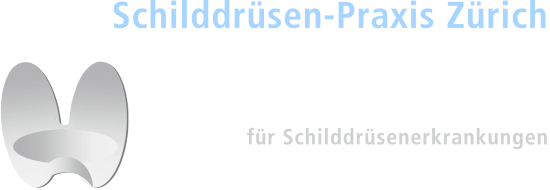Thyroid treatment
Medication
If the thyroid gland is underactive, the thyroid gland produces too few hormones. This deficiency can be compensated by taking a tablet. The aim of the treatment is a normal thyroid hormone level in the blood. It is important to take hormones on an empty stomach, with a sip of water only, at least 30 minutes before breakfast, with coffee and black tea please wait at least 60 minutes. Any taking of calcium, magnesium, iron or other metals should also be postponed for a considerable time (> 4 hours).
If the thyroid gland is overactive, it excretes too many hormones. This is often caused by hot nodules or autoimmune inflammation of the thyroid gland (Graves’ disease). Here thyrostatic drugs can slow down the formation of thyroid hormones. This treatment requires regular, tight controls by the thyroid doctor and exact adherence to the thyrostatic dosage. Thyrostatic treatment is limited in its duration due to possible side effects. In the case of prolonged hyperactivity, definitive therapy (radioiodine therapy or surgery) is necessary. Beta-blockers are helpful in cases of increased cardiovascular activity due to hyperactivity.
Cyst puncture
Large localized fluid accumulations in the thyroid gland, like large thyroid nodules, can be disruptive or painful. With the help of a puncture, the thyroid doctor tries to significantly reduce the size of the cyst. This is successful where cyst contents are aqueous. However, it is possible for the fluid to continue to run and thus for the cyst to increase in size again. Then a definitive treatment (echotherapy/operation) is recommended.
Radioiodine therapy
Radioiodine therapy is used to treat hot thyroid nodules, Graves’ disease (autoimmune inflammation) and very small remains of the thyroid after surgery for thyroid cancer. Above a certain radioiodine dose, the treatments are performed at University Hospital Zurich (UHZ) or at Triemli Hospital in Zurich on an inpatient basis.
Echotherapy
With this new treatment method, thyroid nodules are reduced with high-frequency ultrasound on an outpatient basis. This treatment is currently only performed on benign nodules. After treatment lasting approx. 30 minutes, the patient can leave the practice without any restrictions. The medical advantages of this method are: no surgery, no general anesthesia, no scars, no inpatient stay, no organ loss.
Surgery
Complete or partial removal of the thyroid gland is performed in the case of large, disruptive thyroid gland nodules/cysts, persistent inflammation (Graves’ disease / viral thyroiditis) or in the case of suspected or proven thyroid cancer. We arrange a referral to a thyroid surgeon and look after you before and after the operation. For many years there has been trusting and close cooperation with the surgical department of the Zollikerberg Hospital.


